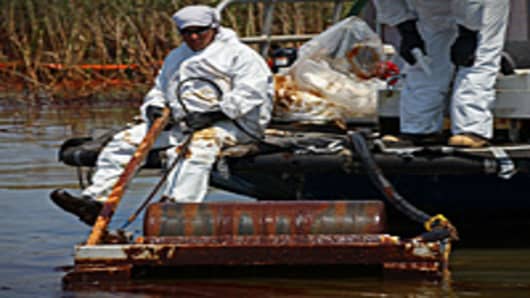Fibertect was invented by Professor Seshadri Ramkumar at Texas Tech University's Institute of Environmental and Human Health. It's manufactured for First Line Technology by Hobbs Bonded Fibers. The product consists of 3 layers—a sandwich of super absorbent cotton on the outside and a center layer of fibrous activated carbon.
Amit Kapoor, President of First Line Tech, says they've tested Fibertect on oil and it works. "Fibertect allows for a green, environmentally safe, biodegradable technology that is perfect for the expanding effort to protect and decontaminate coastal lands and wildlife," Kapoor says.
He's tried to contact BP, but says he hasn't gotten much of a response. Kapoor has, however, been contacted by some of BP's contractors. "They're using buckets and shovels on the beaches. But how do you clean up the marshes?" asks Kapoor.
"That's where Fibertect comes in." It can also be used to clean up wildlife. "Fibertect is not the solution to everything," says Kapoor, "but it can clean up marshes, boats, people, and more."
The inquiries from contractors tell Kapoor he's got a product that would be useful. He's going to try again to contact BP.
US Attorney General Eric Holder visited the Gulf region today as the federal government launched a criminal investigation of the spill. The FBI is participating in the probe and Holder says authorities are trying to determine if thre is any evidence of illegal behavior.
Tomorrow on "Power Lunch" at 1:45pm ET, we'll report on an organic, non-toxic product that uses microbes to soak up oil. Could it be another privately-developed method of helping clean up the leaking crude?


